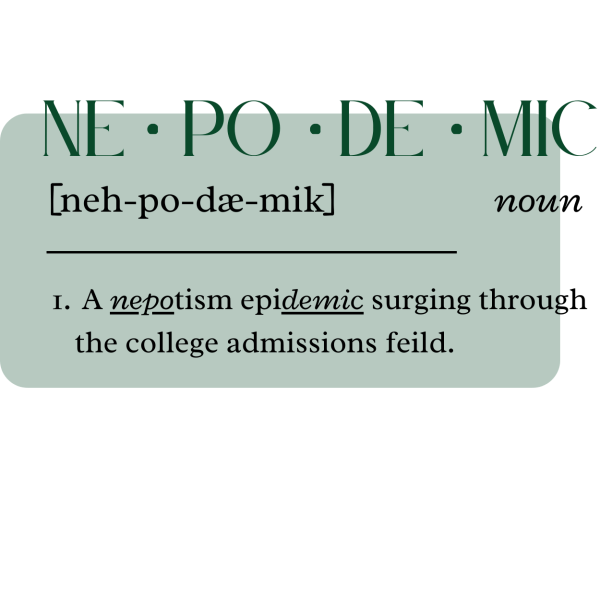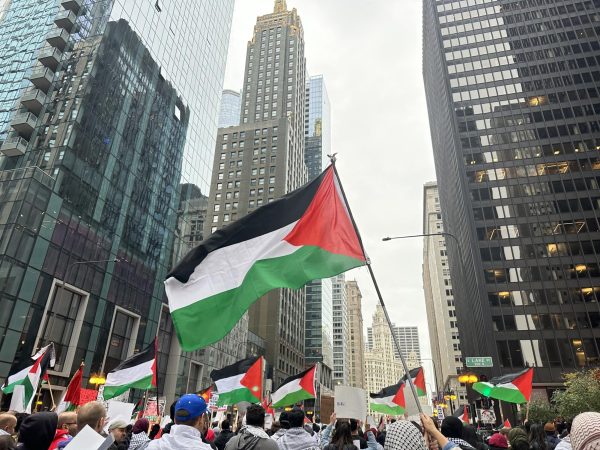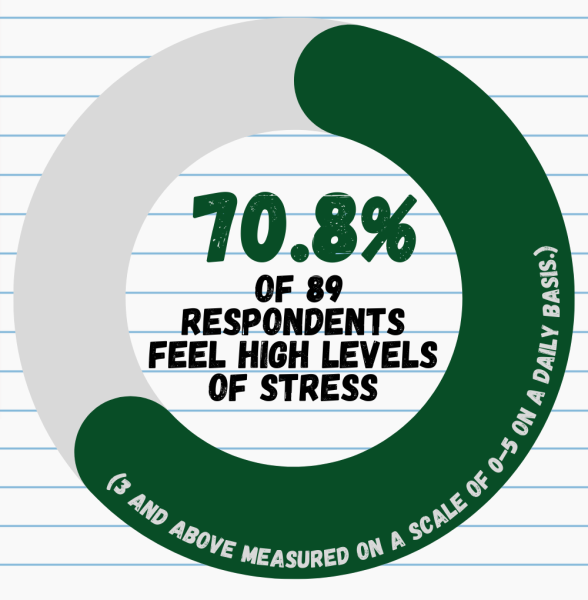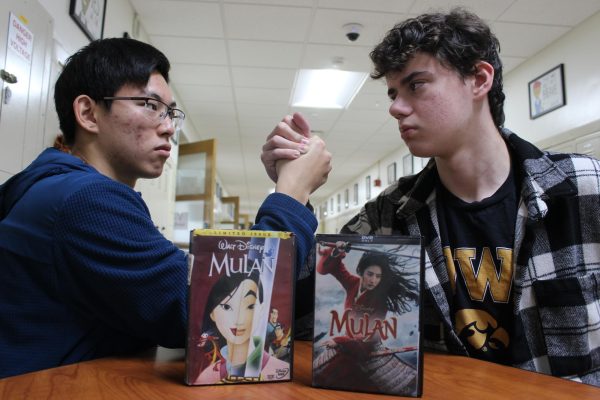Too tan, too pale: Caught between cultures
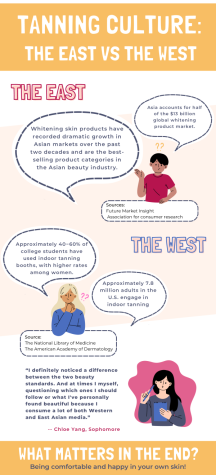
I, (Sarah) grew up hating how fast I tan. I covered myself in sunscreen, wore clothes in the sun and used umbrellas to block the sun’s rays. But when I moved to Libertyville, I was taken aback at how desirable having a tan was. Especially coming back to a new school year, it’s common to see sun-kissed skin tones decorate the halls showing off the highlights of summer vacation and days on the beach.According to a study by the National Library of Medicine, 40% of adults in the U.S. believe they are ‘more attractive’ with a tan. Today’s pop culture and general beauty standards seem to enforce this typical norm.
“[I know a lot of people] that like to have that ‘post beach glow,’” sophomore Chloe Yang said. “Specifically, they want a perfect golden brown shade to really show everyone ‘hey, I went to the beach’. It’s seen as you look healthy, toned, and overall desired by Americans.”
Tanning is so popular that some use artificial tanners all year, and some even come to the point of risking their own health to feel beautiful, especially before events. I’ve (Sarah) known people who are willing to burn their skin with a sunburn because it turns into a “tan” later – despite the short and long term effects of excessive UV exposure.
“I think [being tan] is definitely something that people feel they need to have,” senior Maggie Paden stated. “[When people go to a dance] they want to be tan so that they look better in their dress or they don’t look weird against other girls because they’re tanning so they feel like they have to.”
Additionally, as social media relentlessly reinforces certain standards for attractiveness, the “tan-ness” of one’s skin is becoming increasingly an insecurity.
“I feel like nowadays being tan is a new beauty standard along with the clothes you wear, and the size you are,” Paden explained.
However, being a person of color makes it even more complicated. Due to the prevalence of colorism in some countries, if you’re paler, you’re beautiful. Here, if you’re tanner, you’re beautiful. Being a POC in Libertyville means that you fall short somewhere.
“Here we have tanning beds and spray tans but in East Asia, [they promote] skin lightening products,” Yang, who is Asian American, said, “I know girls in China and South Korea will get foundation one or two shades lighter than their actual skin tone. Generally in magazines and social media, the most desired [skin tones] are brighter and fairer.”
Those who fall cleanly into one culture might be unaware that it’s hard to feel beautiful when inundated with both Asian beauty standards and American beauty standards.
“At times I, myself, questioned which ones I should follow or what I’ve personally found beautiful because I consume a lot of both Western and East Asian media,” Yang said.
I (Zahraa) experienced the same. As a child, I was taught to cover up in the sun with excessive sun cream whenever I went outside to play with the rest of the neighborhood kids. While listed as a harmless intention, I now realize that this was not only to avoid sun burns but my complexion changing color too. I can’t fault my family for following this beauty standard as it’s extremely common amongst those from Asian decent. And unfortunately, it’s incredibly valid as in many parts of the world, people are treated differently for how dark their skin tone is.
Junior Jocelyn Hurh, an Asian American, has felt the pressures of the intersection of beauty standards as she has grown up too.
“My parents always slathered me in sunscreen, [as] I tan naturally and very fast,” Hurh explained. “But it’s more like trying to keep your skin paler on the Asian side. Whereas tanning is [more] beautiful on the American side. So I’ve seen both sides [of] it.”
While it’s near impossible to “solve” this problem, there is a way we can combat alienating those with certain skin tones and diminishing others for their skin tone: by loving ourselves and our skin, no matter what color we are.
As soon as we feel comfortable and confident with our unique complexions, whether we exist in the flux of cultures or not, we reinforce a culture of tolerance and kindness.




